By Joseph Spanjers, November 21, 2014
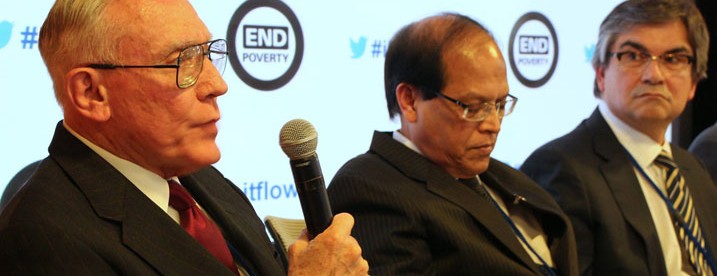
Mexico and Bangladesh Voice Support for a Clear Target on Curbing Illicit Financial Flows on the Sustainable Development Agenda
The United Nations is in the process of forming the post-2015 development agenda. These proposed Sustainable Development Goals (SDGs) will eventually replace the Millennium Development Goals (MDGs) that were agreed upon for 2000-2015. As with the MDGs, the SDGs will inform which development issues take priority in the coming years.
Sustainable Development Goal 16.4, as is currently proposed by the UN’s Open Working Group, calls on the international community to:
“by 2030 reduce illicit financial and arms flows, strengthen recovery and return of stolen assets, and combat all forms of organized crime.”
Global Financial Integrity (GFI) applauds the Open Working Group for considering illicit financial flows in its proposal. Though Goal 16.4 is definitely a start in the right direction, it is not exclusively focused on illicit financial flows, nor is it measurable in the least. GFI proposes the following as an alternative:
“by 2030, reduce illicit financial flows related to trade misinvoicing by 50%.”
By Christine Clough, PMP, November 13, 2014
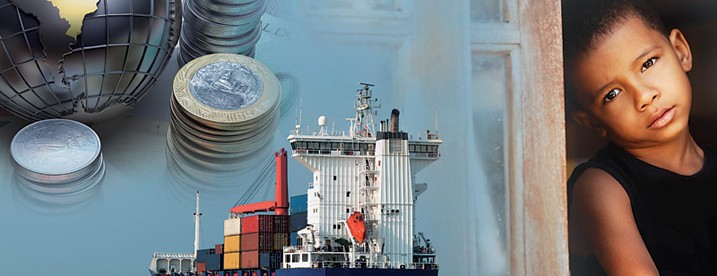
A Recent GFI Study & Conference Focused on Brazil’s Illicit Financial Flows, which Cost the Latin American Country US$401.6 Billion from 1960-2012
A pair of articles by The Economist last week highlight the economic challenges that Brazil’s recently re-elected president, Dilma Rouseff, will face in her second term leading Latin America’s largest economy. The federal budget shortfall has grown to 4.9% of GDP. Tax increases could further undermine growth, and cuts to benefits programs for Brazilians might also decrease spending and slow the economy, in addition to weakening progress on addressing the country’s economic inequality and poverty rates.
Many Brazilians already complain about the high tax rates and poor public services. According to a Christian Science Monitor article, which cites the Brazilian Institute of Tax Planning:
“the average person works 150 days a year to pay taxes, compared with 102 days in the [United States]. Among the 30 countries with the highest tax burdens, Brazil ranks last in terms of the quality of services citizens receive in exchange for high taxes.”
Businesses and individuals in Brazil are also dealing with high inflation, slow growth, a weakening currency, and a growing current-account gap.
By Tom Cardamone, September 30, 2014
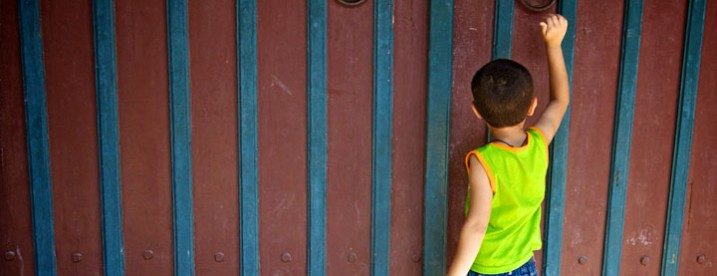
GFI Calls for a Sustainable Development Goal (SDG) to Halve Illicit Flows from Trade Misinvoicing by 2030
As I noted in yesterday’s post, the momentum toward global action on illicit flows by the international community (i.e. the United Nations, OECD, G20, etc) has grown substantially over the past three years. Indeed, last October, the World Bank Group noted that “there is little doubt that [illicit] flows have a pernicious impact on development” and the UN group working on development financing said that “domestic resource mobilization is being severely undermined by illicit financial flows.” And, in January, the African Union stated that “it is imperative to curtail illicit financial flows [to ensure] the efficient and effective use of resources.”
But, while there is an understanding of the problem and a willingness to act, there is no broad consensus on what should be done. The opportunity that presents itself comes from a once-in-a-generation confluence:
- the international community agreeing on the need to reduce illicit financial flows (IFFs), and
- 2) the fact that the Post-2015 development agenda is open for debate.
The political will already exists to address the IFF challenge in concrete ways. Now, the question is: what does a SMART (i.e. Specific, Measurable, Achievable, Relevant, Time-bound) SDG target on illicit flows look like?
By Tom Cardamone, September 29, 2014
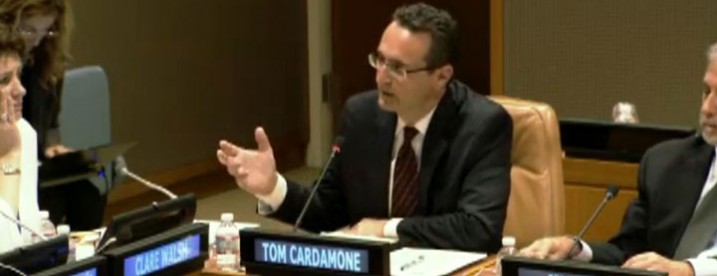
GFI Participates in High Level OECD Side-Event on Curbing Illicit Flows during UN General Assembly Meetings
On September 24th, tucked away in a quiet conference room in the basement of the UN General Assembly building, an extraordinary conversation took place on the future of global development. But, despite the gathering of representatives from the OECD, UN, World Bank, USAID and the Mexican, Australian, and Nigerian governments, the event received exactly zero media coverage.
Titled “Curbing Illicit Financial Flows for Domestic Resource Mobilization and Sustainable Development in the Post-2015 Era,” the focal point of the two-hour discussion was how the international community could, as the program description put it, “identify concrete international actions needed” to curtail illicit financial flows out of developing country economies. While other events were given more airtime and other issues may require more immediate attention, some ideas presented at the panel could be transformational in terms of how countries address the scourge of illicit flows and how the development agenda is funded.
By Clark Gascoigne, September 23, 2014
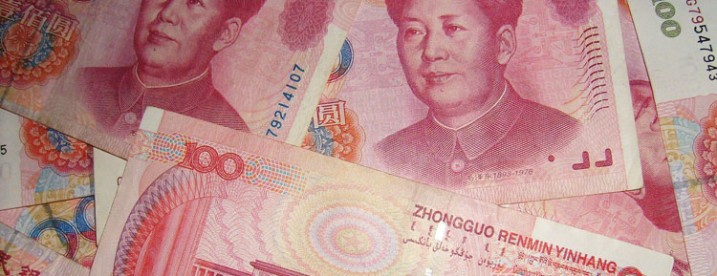
GFI’s Current Methodology Finds Illicit Outflows from China Totaled US$1.08 Trillion from 2002-2011, Not US$2.83 Trillion from 2005-2011
With the anti-corruption drive underway in China, our estimates of illicit financial flows have been in the news a lot lately. This is for good reason; there is a ton of illicit money gushing out of China.
But, if you have been reading multiple stories on this topic, you might be a little confused about the precise scale of the problem facing China.
Prominent outlets such as the Financial Times, the South China Morning Post, and China Daily, among others, have all reported over the past week that:
“The US-based non-profit group Global Financial Integrity estimates illegal flows out of China amounted to $2.83tn between 2005 and 2011.”
While other major sources such as Businessweek and the Heritage Foundation have stated:
“Between 2002 and 2011, $1.08 trillion of illicit funds were spirited out of China, estimates Washington (D.C.)-based nonprofit Global Financial Integrity.”
These estimates are widely different. Some of these outlets must be incorrect in their reporting, right?
By Grace Zhao, August 22, 2014

U.S. Laws Enable the Outflow of Illicit Money from China, which Totaled US$1.08 Trillion from 2002 to 2011
Corrupt politicians, fugitive officials, and leaders on the lam have found a new safe haven to call home—the United States of America.
Interestingly enough, despite the sometimes contentious relationship between the two countries, the U.S. has now become the destination of choice for China’s “economic fugitives” running from corruption charges in their home country according to China Daily and the International Consortium of Investigative Journalists.
Many of these fugitives are known as “naked officials”, those who have moved their assets and family abroad to avoid regulations and scrutiny. Much of the time, these are high ranking leaders who have decided to move their wealth abroad should a corruption investigation arise.
By Grace Zhao, July 31, 2014

IFJP Seeks Applicants for its Four-Day Media Training Program on Illicit Finance, Financial Secrecy, and Asset Recovery by August 24th
If you weren’t able to sign up for the Thomson Reuters Foundation’s media training program on illicit finance and tax abuse in Africa, you’re in luck because another opportunity has just opened up!
The Illicit Finance Journalism Programme (IFJP) has launched its fourth training program, Introduction to Illicit Finance, Financial Secrecy, and Asset Recovery Autumn 2014. This is a four-day training workshop that will focus on equipping journalists from the developing world to expose illicit financial practices—from corruption to money laundering to tax evasion—and analyze the impact such illicit financial activity has on an economy and society.
According to the IFJP, the workshop aims to:
bring together journalists from countries where often corruption, tax havens and harmful tax practices stall development and entrench poverty.
To do so, the program will focus on teaching journalists how to access company accounts, how to investigate corruption stories, how to track the international policy agenda, and a number of other foundational steps in understanding the offshore world and illicit financial flows.
By Grace Zhao, July 30, 2014

Joint GFI/MINDS Event, Taking Place September 9th in Rio de Janiero, Will Launch New, In-Depth Research on Brazil’s Illicit Financial Flows
We are pleased to announce the dates of our much anticipated conference in Brazil, Illicit Financial Flows in Brazil: A Hidden Resource for Improving Prosperity and Economic Stability.
Join us on September 9th for a joint conference in Rio de Janeiro hosted by GFI and the Multidisciplinary Institute for Development and Strategies (MINDS).
The conference will focus on illicit financial flows in Brazil. According to our previous research, Brazil has a significant problem with illicit outflows, which totaled roughly US$193 billion from 2002 through 2011, making it the 7th largest exporter of illicit capital globally.








